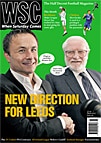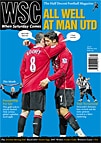 Goalkeepers have always been slow to admit responsibility for any goal their team concedes, but the way they demonstrate this has changed across the ages. Cameron Carter charts the history of these complex blame-shirking gestures and what happens when it all gets too much for them
Goalkeepers have always been slow to admit responsibility for any goal their team concedes, but the way they demonstrate this has changed across the ages. Cameron Carter charts the history of these complex blame-shirking gestures and what happens when it all gets too much for them
The Fatalist
If you consider footage from the 1960s and 70s, you will notice that the goalkeeper of this era is a more mild and resigned sort of person in the face of personal failure. After Georgie Best or Jimmy Greaves has sashayed round him and slipped the ball home, our isolated chum will invariably plod into the back of the net and simply tidy up his goal by kicking the ball downfield for the restart. It is as if he is thinking: “Well, this was bound to happen sooner or later. The ball is round, several people out there are intent on getting it into my net. I’m surprised this type of thing doesn’t happen more often.” There is no finger-pointing, no petit mort of the goalmouth lie-down, just a gentlemanly acceptance of the inevitable. Gradually, pioneering individuals such as Gary Sprake would introduce a bit of hands-on-hips action as an aperitif, but it was still a case of fumbling around for the ball afterwards and getting on with the game.
Read more…
 Julius Bergmann reports on where the Germans stand on terracing
Julius Bergmann reports on where the Germans stand on terracing